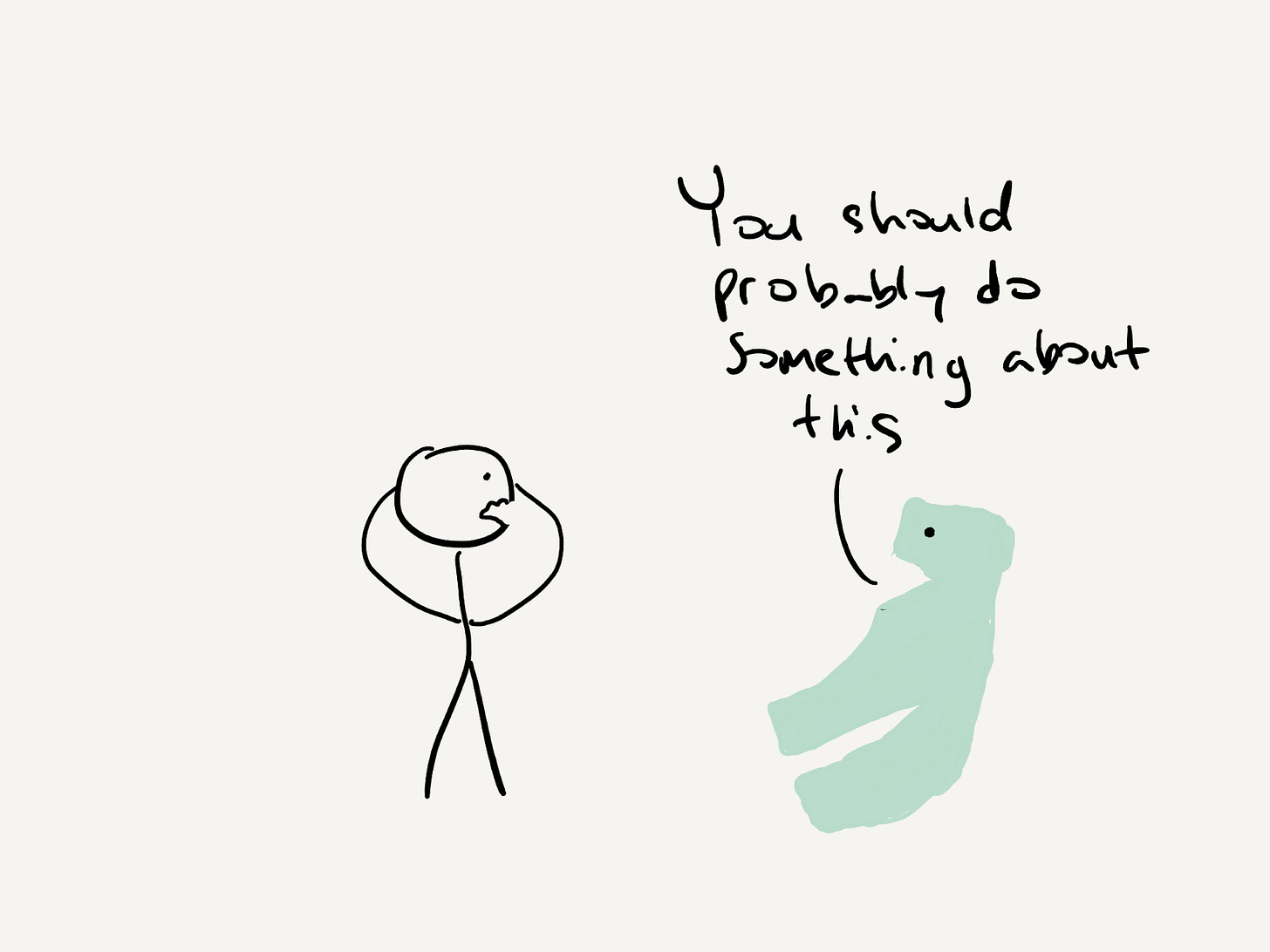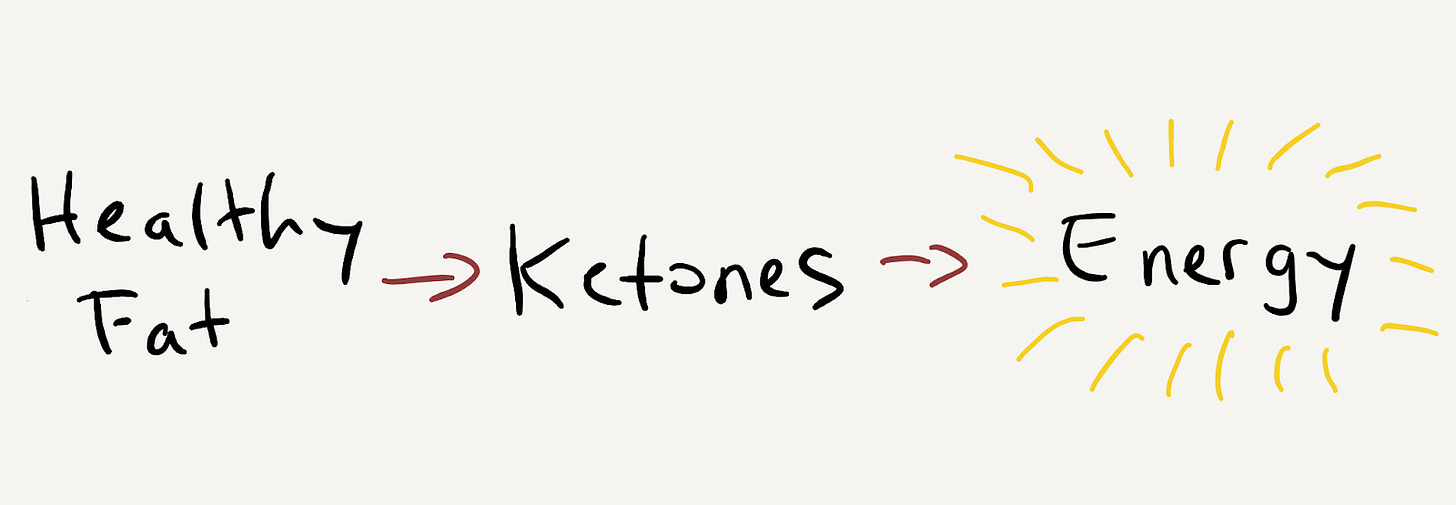Why I'm Creating a Keto Course
Keto isn't really about the diet, it's about a new approach to living
Three years ago I was overweight and constantly tired. Actually, let me be more blunt: I was fat and lazy.
For most of my life, I played sports so I didn’t have to worry about what I was eating. But once I stopped playing sports in college, that started to change.
After just a couple years, I had to eat something every couple hours to remain alert. By 3 or 4pm I needed a nap because I was so damn tired.
At one point, I went on a family vacation to New York City and put on jeans for dinner. A couple minutes later, the button burst off.
I finally realized I needed to get my shit together.
A few weeks later I came across an article about the “slow carb” diet. It seemed simple to follow so I swapped out rice for vegetables, limited my fruit intake and quickly started seeing results. Over the next couple months, I lost 15 pounds and no longer needed an afternoon nap.
I started hearing about this keto thing but it seemed a little crazy. Keto taught the exact opposite of what I learned about food growing up. Let’s take a slight detour to understand how it works.
Keto 101
Wait, so why do we even need food in the first place? Aside from using it as a coping mechanism after getting dumped for the fourth time, our bodies need food so it can be broken down into energy.
When carbs are digested, they’re converted to glucose in our bloodstream and used by cells for energy.
For centuries, scientists believed that glucose was the only fuel source for our body.
However, in the 1950’s, researchers found that once our glucose levels were depleted (through fasting or reducing carb intake), our body could use stored fat as a fuel source. When our body runs on these fat stores it produces molecules called “ketones”.
Turns out, ketones can be a more efficient fuel source than glucose and studies have shown its ability to improve cognitive function and limit neurodegenerative diseases like Alzheimer’s and Parkinson’s.
To shift your body from using glucose as a primary fuel source to ketones, you need to become “keto adapted”. That’s where the ketogenic diet comes in.
By reducing carb intake to less than 50g/day, eating moderate amounts of protein, and high amounts of healthy fats, your body can become keto adapted in a few weeks.
Of course, this varies based on a number of variables such as activity level, total caloric intake, and health condition. But this is the tldr of keto: limit carbs and eat healthy fats so your body begins using stored fat as its primary fuel source.
Now, back to our regularly scheduled programming
After a few weeks continuing to plateau on the slow carb diet, I said f*ck it and went on a strict ketogenic diet. I meticulously tracked my carb intake and limited myself to moderate amounts of protein.
And guess what? It worked! Really damn well actually. I blew past the plateau and became a fat burning machine.
Just nine months after starting this journey, I lost 40 pounds and felt better than ever.
But I still felt a little crazy.
My friends made fun of me for putting two giant scoops of butter in my coffee every morning.
My parents couldn’t believe I was skipping breakfast (“the most important meal of the day”). It wasn’t until I went to a research conference on the ketogenic diet that I realized: maybe I’m not crazy.
In between presentations, I chatted with the person next to me to exchange stories and share tips. For the first time in my dieting journey, I felt like I had found my tribe.
Over the next few years, multiple friends asked me for advice on low-carb, keto, and fasting. Inevitably, most would try it for a few weeks but quickly go back to their previous lifestyle. For the ones that were successful, I noticed many of them had a strong support group.
Whether it was a friend or family member, they had someone to keep them accountable, listen when they were struggling, and provide motivation when needed.
Given that, I’m building an online course where people can learn a structured approach to low-carb dieting, keto, and fasting while getting the support they need.
For the past decade, if you wanted to learn about keto, you had to go down a rabbit hole of books, YouTube videos, podcasts, and subreddits. Although many of these resources are useful, they don’t tend to be rooted in human connection.
Going keto isn’t really about the food you eat. Instead, it’s about a new approach to living.
It’s about questioning conventional wisdom. It’s about ruthless experimentation. It’s about understanding your mental self-talk. It’s about being aware of your body. It’s about building sustainable habits. It’s about being part of a tribe.
I’m creating an online course where beginners go through a “28 day low-carb challenge” with others at a similar stage and learn the principles of this new lifestyle. Where they can engage with experts and share stories amongst themselves about the struggles they’re going through.
At the end of the 28 days, there will be access to a community to:
Provide and receive support
Learn about advanced topics like extended fasts and improving cognitive performance
Participate in private livestreams with experts to get personalized advice
Share new recipes you love
If you’d like to get notified once course registration opens, DM me on Twitter or enter your email here for priority access.
I think these types of shared experiences are a key part of solving the problems we see today regarding loneliness, anxiety, obesity, etc. My hope is that more online communities are built to provide people the human connection needed to transform their lives.
Thank you to the Compound Writing members who reviewed this post: Padmini Pyapali, Adam Tank, Steven Ovadia, and Louis Pereira












